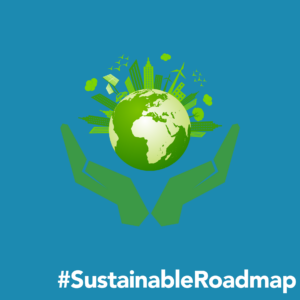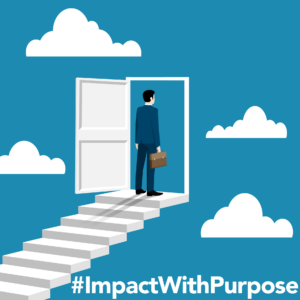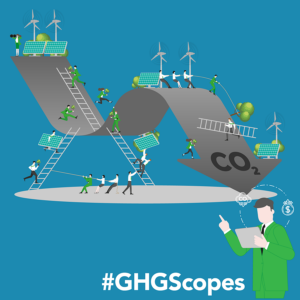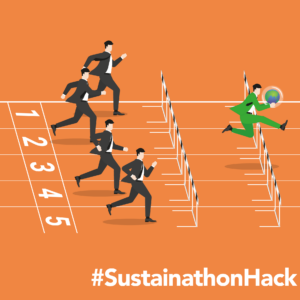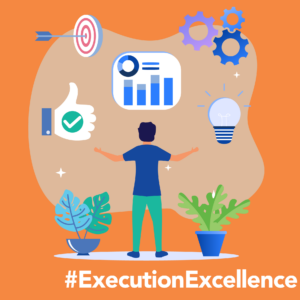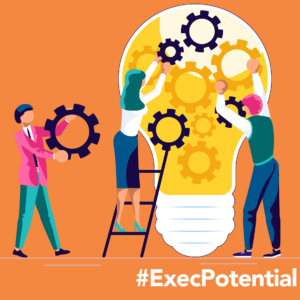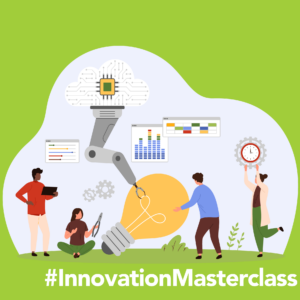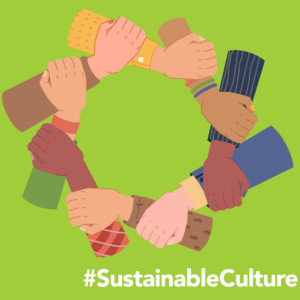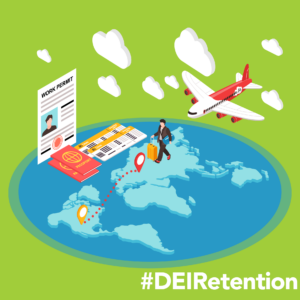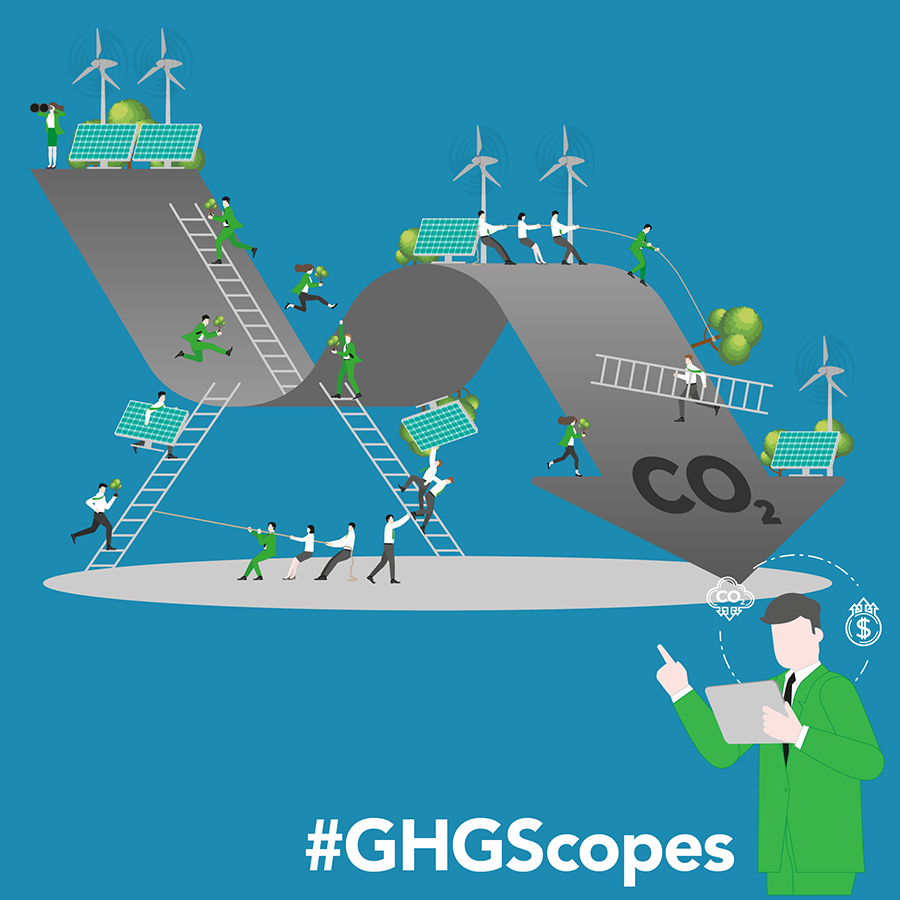
A3 - #GHGScopes
by Lim-Loges & Masters (LLM) & B Purpose Bureau (BPB)
- GHG Emissions Insight: Understand Scope 1, 2, and 3 emissions, their impact on business and the environment.
- GHG Management Strategies: Learn methods to effectively reduce GHG emissions and achieve sustainability objectives.
- Scenario Analysis: Use scenario analysis for predicting sustainability sector challenges and opportunities.
- Environmental SWOT Analysis: Conduct a SWOT analysis focused on environmental strategy.
- CEA Strategies Development: Develop Carbon Emission Abatement strategies to lower emissions and increase company value.
- Sustainability Performance Metrics: Measure the success of sustainability efforts with key indicators and a maturity assessment tool.
- Sustainability Opportunities: Transform environmental and regulatory challenges into strategic business opportunities.
- Continuous Improvement Culture: Implement best practices to foster a culture aimed at ongoing sustainability improvement.
What is the #GHGScopes programme?
In an era where corporate energy affairs are no longer a middle-management domain but are now a critical aspect of corporate leadership and governance, our #GHGScopes programme emerges as a beacon of innovation and strategic foresight. It underscores the imperative for businesses to embed this functional strategy at the heart of their business and corporate strategies. Emphasising the need for companies to treat regulatory requirements as a floor and not a ceiling, it adopts sustainable practices, reducing their carbon footprint, and innovating for climate change solutions. This programme aims to advance organisations towards a sustainable future, benefiting all stakeholders.
What are the objectives?
Our #GHGScopes programme equips chairpersons, board members, and senior executives with essential knowledge and tools to effectively understand and manage Scope 1, 2, and 3 Greenhouse Gas (GHG) emissions. It aims to turn complex and consequential energy-related challenges into opportunities for sustainable growth, resilience, and sustainability leadership, transforming how GHG considerations can shape a company’s strategic success.
Our proven methodology for sustainable success
We employ a fusion of scenario analysis, SWOT analysis, and time-tested consultancy methods to develop robust CEA strategies. These strategies are designed not merely to optimise energy use but to aggressively enhance value, ensuring the stewardship of this resource becomes a key strategic advantage.
-
Measurability:
To gauge the effectiveness of the CEA strategy, leaders are provided with clear indicators, including competitive positioning and areas ripe for growth. Our unique maturity assessment, part of the Environmental Strategy Assessment (ESA), facilitates this analysis, fostering a culture of continuous improvement.
-
Format:
The programme is delivered through an interactive masterclass with a dynamic format that encourages deep engagement and critical thinking among participants.
-
Size:
- 15 participants for groups comprising solely non-executive board members or C-level executives.
- Maximum of 15 for mixed groups of board and C-level participants.
-
Duration and Fees:
- Duration varies from 1 to 8 hours and is customisable to client preferences.
- Flat fee, unaffected by session length.
- 3 months consulting following workshop.
View more services
-
A1 #SustainableRoadMap by Eden Group
-
A2 #ImpactWithPurpose
-
A3 #GHGScopes
-
B1 #SustainableHack
-
B2 #ExecutionExcellence
-
B3 #ExecPotential
-
C1 #InnovationMasterclass
-
C2 #SustainableCulture by Gary Loke
-
C3 #DEIRetention
Success Stories
The Company Secretary of a gold mining company listed on the Hong Kong Stock Exchange took note of the Listing Rules, specifically Appendix 14 Corporate Governance Code Provision A.6.5, which states “All directors should participate in continuous professional development to develop and refresh their knowledge and skills. This is to ensure that their contribution to the board remains informed and relevant.”
Approach
The Board set a date to participate in the ‘Energy Use – New Perspectives’ workshop. The declared objectives were to consider:
- Hypothesis A – that there could be other ways of thinking about energy use than those commonly applied
- Hypothesis B – that these different perspectives could enhance profit and shareholder value
- Hypothesis C – that the company’s Board could have a role to play in bringing that profit and shareholder value to fruition
Results
Board members quickly became engaged in the novel learning environment and the challenge to traditional thinking about corporate energy affairs.
In only a couple of hours the Board was able to:
- Re-price upstream and downstream energy-use costs and benefits.
- Re-prioritise the company’s objectives vis a vis energy use. Cost control turned out to be secondary.
- Re-examine a host of challenges and issues, under-appreciated assets and strengths, and an unintentionally masked stakeholders’ ‘expectations trajectory’.
About the consultant
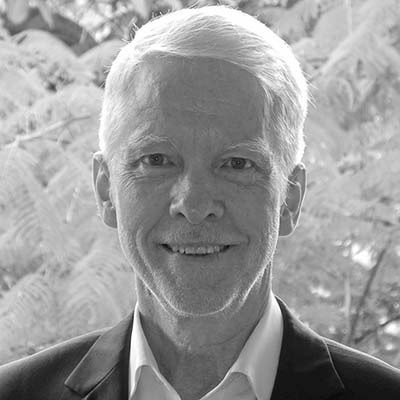
Robert C. Allender, Corporate Energy Affairs Strategist
With over three decades of dedicated practice in corporate energy affairs, Robert C. Allender stands as a vanguard in guiding company boards and C-suite leaders throughout Asia and the Middle East. He specialises in utilising a company’s inherent strengths to foster value creation, particularly in navigating the complexities of decarbonisation, energy transition, Scope 3 emissions, and the energy aspects of ESG initiatives.
Robert’s innovative approach includes the development of bespoke’ energy affairs frameworks,’ granting corporate leaders unprecedented insights into their energy use ecosystems. These frameworks illuminate current energy practices and sketch out desired future states for strategic milestone setting. Furthermore, Robert introduced a corporate energy affairs maturity model, offering businesses a mechanism to systematically gauge and enhance their energy affairs strategies over time.
Though his background is not in engineering, Robert’s pioneering contributions to the field have been recognised by his stature as a Life Member of the Association of Energy Engineers (US-based) and a Fellowship with the Hong Kong Association of Energy Engineers. He is an alumnus of Cornell University, where he earned his BSc in Business.

